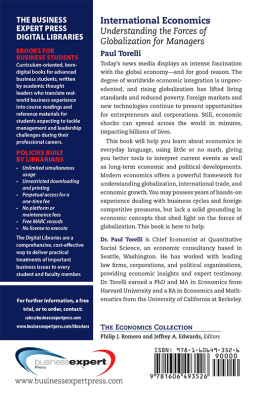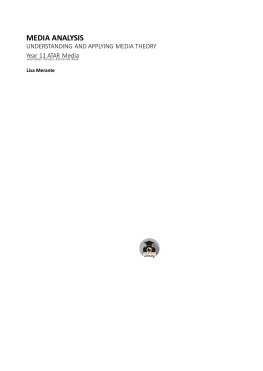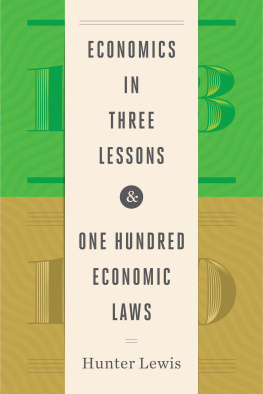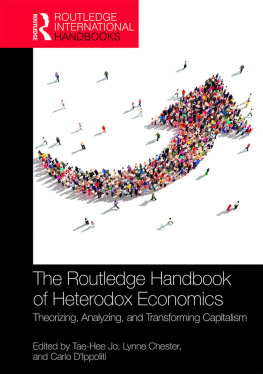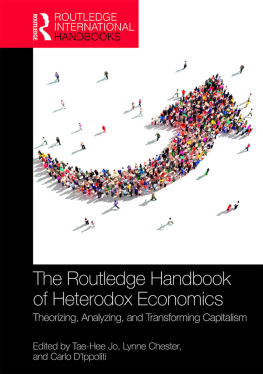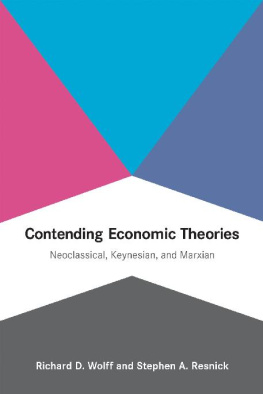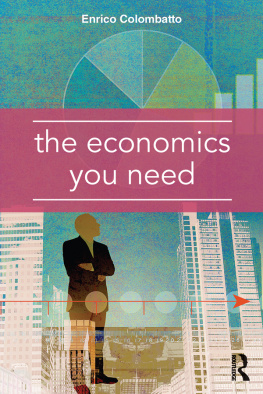Media EconomicsKey Concerns in Media Studies
Series Editor: Andrew Crisell
Within the context of todays global, digital environment, Key Concerns in Media Studies addresses themes and concepts that are integral to the study of media. Concisely written by leading academics, the books consider the historical development of these themes and the theories that underpin them, and assess their overall significance, using up-to-date examples and case studies throughout. By giving a clear overview of each topic, the series provides an ideal starting point for all students of modern media.
Published
Paul Bowman Culture and the Media
Andrew Crisell Liveness and Recording in the Media
Stuart Cunningham, Terry Flew and Adam Swift Media Economics
Tim Dwyer Legal and Ethical Issues in the Media
Katie Ellis and Gerard Goggin Disability and the Media
Gerard Goggin New Technologies and the Media
David Hendy Public Service Broadcasting
Shaun Moores Media, Place and Mobility
Sarah Niblock Media Professionalism and Training
Sean Redmond Celebrity and the Media
Niall Richardson and Sadie Wearing Gender and the Media
Forthcoming
Steve Cross Religion and the Media
Brian McNair News Media
Monika Metykova Ethnicity and the Media
Kate ORiordan Science and the Media
Sue Turnbull Media Audiences
Media Economics
Stuart Cunningham
Terry Flew
and
Adam Swift
Stuart Cunningham, Terry Flew and Adam Swift 2015
All rights reserved. No reproduction, copy or transmission of this publication may be made without written permission.
No portion of this publication may be reproduced, copied or transmitted save with written permission or in accordance with the provisions of the Copyright, Designs and Patents Act 1988, or under the terms of any licence permitting limited copying issued by the Copyright Licensing Agency, Saffron House, 610 Kirby Street, London EC1N 8TS.
Any person who does any unauthorized act in relation to this publication may be liable to criminal prosecution and civil claims for damages.
The authors have asserted their rights to be identified as the authors of this work in accordance with the Copyright, Designs and Patents Act 1988.
First published 2015 by
PALGRAVE
Palgrave in the UK is an imprint of Macmillan Publishers Limited, registered in England, company number 785998, of 4 Crinan Street, London N1 9XW.
Palgrave Macmillan in the US is a division of St Martins Press LLC, 175 Fifth Avenue, New York, NY 10010.
Palgrave is a global imprint of the above companies and is represented throughout the world.
Palgrave and Macmillan are registered trademarks in the United States, the United Kingdom, Europe and other countries.
ISBN 9780230293229
This book is printed on paper suitable for recycling and made from fully managed and sustained forest sources. Logging, pulping and manufacturing processes are expected to conform to the environmental regulations of the country of origin.
A catalogue record for this book is available from the British Library.
A catalog record for this book is available from the Library of Congress.
Tables and Figures
Tables
Figures
Acknowledgements
Research on which this book is based was in part supported by the Australian Research Council through its funding of the ARC Centre of Excellence for Creative Industries and Innovation (SR0590002) and through the ARC Discovery Project (110101455), Informal Economics and Audiovisual Industries: Histories, Dynamics, Legal and Policy Responses, awarded to Julian Thomas, Stuart Cunningham, Ramon Lobato and Dan Hunter.
We would like to thank the Key Concerns in Media Studies series editor, Andrew Crisell, and Palgrave Commissioning Editor Lloyd Langman for their support and expert advice, and the anonymous referees who engaged very helpfully with the book in manuscript form. Thanks also to Bonnie Liu Rui for her work in assisting research for the book.
The authors and publishers thank the copyright holders for permission to reproduce the following:
from Ballon, P. (2014) Old and New Issues in Media Economics, in K. Donders, C. Pauwels and J. Loisen (eds.), The Palgrave Handbook of European Media Policy (p.76). Basingstoke: Palgrave. Reproduced with permission of Palgrave.
from Williamson, O. E. (2000) The New Institutional Economics: Taking Stock, Looking Ahead. Journal of Economic Literature 38: 595613. Reproduced with permission of Oliver E. Williamson and the American Economic Association.
adapted from Loisen, J. (2012) Prospects and Pitfalls for Douglas Norths New Institutional Economics Approach for Global Media Policy Research, in N. Just and M. Puppis (eds.), Trends in Communication Policy Research: New Theories, methods and Subjects (pp. 353). Bristol: Intellect. Reproduced with permission of Intellect Books.
Introduction
This is a book on media economics aimed at scholars, teachers and students in media, cultural and communication studies, as well as anyone interested in how to make sense of rapid change in the media environment. A background in economics is not necessary, but an interest in issues that have an economic dimension is. Many discussions in media and related fields draw upon economic concepts, assumptions and histories while dealing with industry sectors that are, in many ways, at the forefront of structural economic change in post-industrial/advanced capitalist societies.
There is a general agreement that understanding the economic dynamics of media industries and markets is vitally important for the analysis of the media system as a whole. In this book, we do not attempt a comprehensive coverage of all topics covered by media economics. In such a short book, that is completely impractical, and there are already numerous primers which cover mainstream issues in the field very well (for example, Picard, 1989; Albarran 2002, 2010; Alexander et al., 2004; De Vany, 2004; Hoskins et al., 2004; Doyle, 2006, 2013; Mosco, 2009; Hardy, 2014). Here, we have attempted to outline the key elements of the mainstream literature and to complement that literature by pointing to what we believe to be traditions in economics that have been neglected in the field as it is applied to the media.
At regular intervals, we develop case studies to indicate that these different economic paradigms are not just theories but also provide important practical insights that illustrate the utility of considering diverse approaches in economics. These case studies (which appear inside boxed text in the first four chapters) and extended case studies (and the rapid emergence of a post-broadcast television ecology.
Having said that, we offer a distinctive way of organising an introduction to media economics. We do this because what counts as an important issue in media economics is strongly influenced by the framework or theoretical tradition being employed. We identify, in , the two main strands that dominate our understanding of media economics and which contend for overall legitimacy in the field: neoclassical, or mainstream, media economics and critical political economy of the media. These two variants deserve to be treated as the reigning orthodoxies as they produce powerful analyses of the way media works. But they are in many ways so divergent in terms of their objects of analysis, their methodologies and their founding assumptions that a conscientious student, coming at the topic from the disciplines of media, cultural and communication studies, may find that such a divergence makes it difficult to get to grips with media economics. Moreover, neither approach has typically held a particularly charitable view towards the other. Mainstream media economics, like economics more generally, has rarely acknowledged much that is of value in critical approaches to the field, while critical political economy has not only defined itself in opposition to the mainstream approaches, but has at times presented those approaches, and the media economists who use them, as being politically regressive and lacking in an ethic of the common good.


